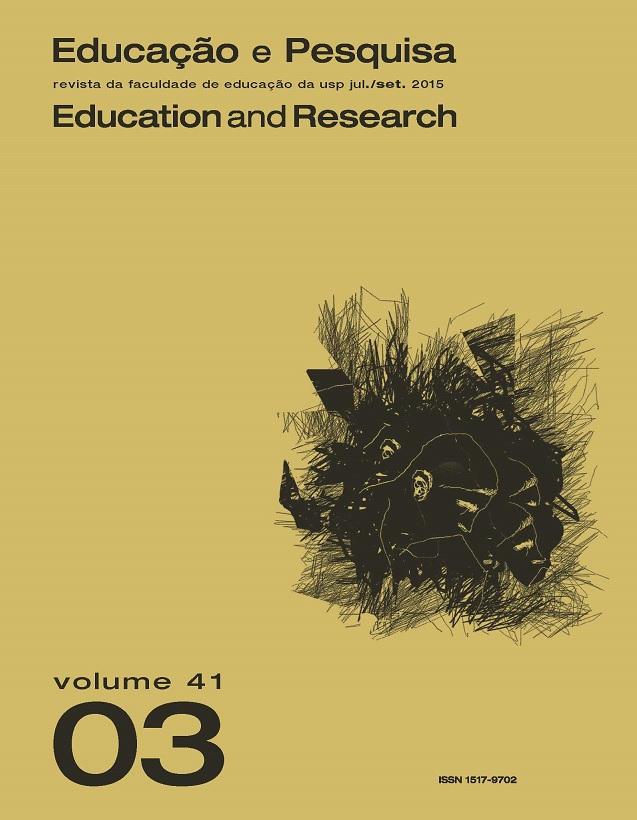O movimento LGBT e as políticas de educação de gênero e diversidade sexual: perdas, ganhos e desafios
DOI:
https://doi.org/10.1590/s1517-97022015031914Resumen
Este artigo explora a relação entre Estado e movimentos sociais na produção de políticas públicas de educação voltadas para o gênero e para a diversidade sexual. Esta reflexão toma como fontes principais duas investigações mais recentes voltadas para a compreensão da introdução do gênero e da diversidade sexual nas políticas públicas de educação no Brasil, no governo de Luiz Inácio Lula da Silva: uma tese de livre docência (VIANNA, 2011) e outro trabalho que verificou como as políticas voltadas para o currículo foram compreendidas, apropriadas e implementadas por professoras e professores de escolas públicas do estado de São Paulo (VIANNA, 2012). A intenção deste artigo foi olhar a produção dessas políticas a partir das tensões presentes na interlocução do governo Lula com demandas sociais por diminuição da desigualdade e construção de direitos sociais advindas do movimento LGBT (Lésbicas, Gays, Bissexuais, Transexuais e Transgêneros). Ao discutir ganhos, perdas e desafios futuros, o texto destaca as contradições presentes no processo de interlocução entre o governo e o movimento LGBT. Quando o governo introduz demandas de gênero e diversidade sexual na educação, parece querer valorizar o tema sem considerar as relações de poder que determinam os parâmetros tradicionais que sustentam as relações de gênero e as identidades docentes no cotidiano escolar.Descargas
Los datos de descarga aún no están disponibles.
Descargas
Publicado
2015-09-01
Número
Sección
Artículos
Licencia
Los conceptos emitidos en los artículos son de exclusiva responsabilidad de sus autores y no reflejan necesariamente la opinión de la redacción.
Está permitida la reproducción total o parcial de los trabajos, siempre y cuando se indique explícitamente la fuente.
Cómo citar
O movimento LGBT e as políticas de educação de gênero e diversidade sexual: perdas, ganhos e desafios . (2015). Educação E Pesquisa, 41(3), 791-806. https://doi.org/10.1590/s1517-97022015031914



